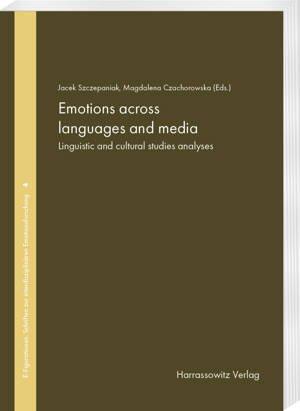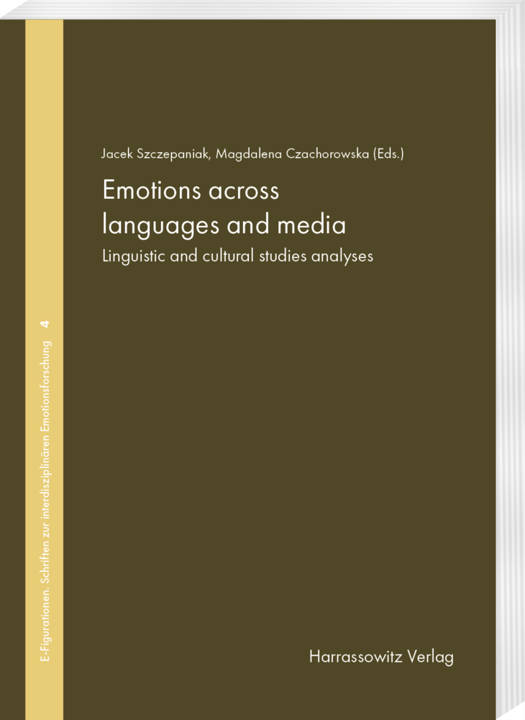
- Afhalen na 1 uur in een winkel met voorraad
- Gratis thuislevering in België vanaf € 30
- Ruim aanbod met 7 miljoen producten
- Afhalen na 1 uur in een winkel met voorraad
- Gratis thuislevering in België vanaf € 30
- Ruim aanbod met 7 miljoen producten
Zoeken
Emotions Across Languages and Media
Linguistic and Cultural Studies Analyses
€ 145,95
+ 291 punten
Omschrijving
Emotions are with us all the time: without them it is difficult to talk about human beings, their condition, their motivations, their past and their future. Emotions are present in education, socialization, politics, culture and nature. To experience them is to experience life. It is therefore that they attract the interest of researchers in various anthropologically oriented disciplines. The question of the possibility of a scientific description of inner states runs through the entire history of research on emotions. There have been countless more or less scientifically based attempts to define them as physiological, behavioral and/or cognitive entities, i.e., complex phenomena at the interface between mind and body, nature and culture. However, emotions are complex, multidimensional phenomena with biological, psychological, and social substrates. They do not exclusively affect the body. As discursive constructs, they can also be symbolic and relate to social contexts. The wealth of stimulating research on emotions is the inspiration for the anthology edited by Jacek Szczepaniak and Magdalena Czachorowska dedicated to the complex and reciprocal relationships between emotions, language(s) and media. On the one hand it is an attempt to draw on the experience of emotion research and, on the other, to provide linguists, literary scholars and cultural scientists with their own interpretative tools. The research focuses on issues related to the representation, concealment and emphasis of emotions in languages as diverse as Arabic, Chinese, German, Polish, Russian and Latin. Each analysis brings to light aspects that are specific to particular cultural groups, but also reveals intercultural transfers, updates through the mediation and politicization of discourses and changes that result from the practical application of knowledge about emotions.
Specificaties
Betrokkenen
- Uitgeverij:
Inhoud
- Aantal bladzijden:
- 318
- Taal:
- Engels
- Reeks:
- Reeksnummer:
- nr. 4
Eigenschappen
- Productcode (EAN):
- 9783447123457
- Verschijningsdatum:
- 26/02/2025
- Uitvoering:
- Paperback
- Formaat:
- Trade paperback (VS)
- Afmetingen:
- 173 mm x 21 mm
- Gewicht:
- 594 g

Alleen bij Standaard Boekhandel
+ 291 punten op je klantenkaart van Standaard Boekhandel
Beoordelingen
We publiceren alleen reviews die voldoen aan de voorwaarden voor reviews. Bekijk onze voorwaarden voor reviews.







